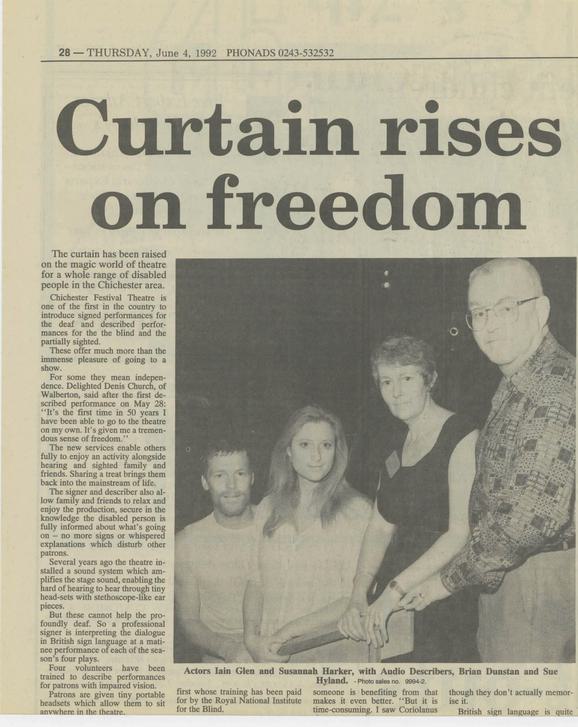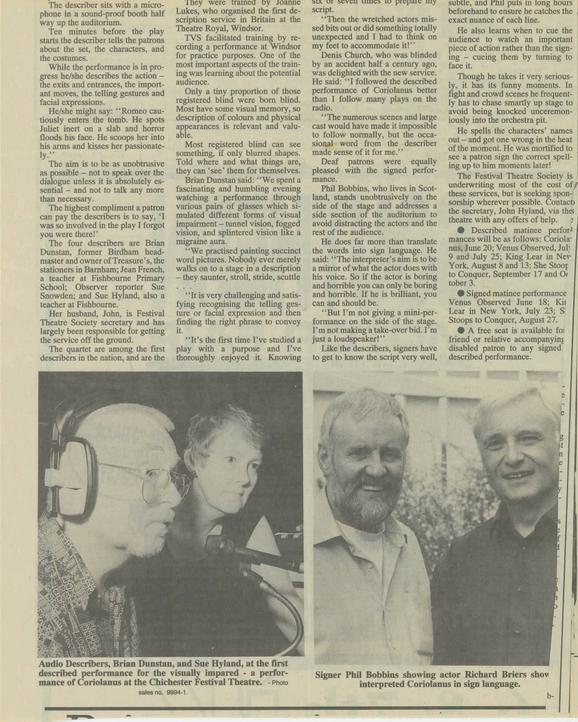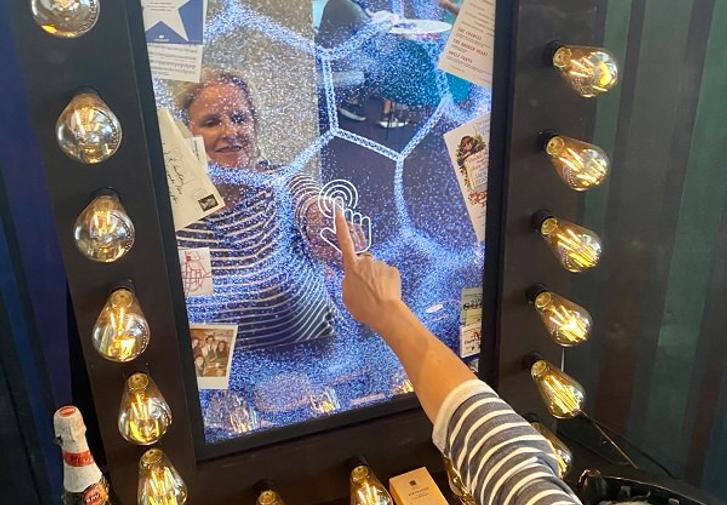
News Story
This Volunteer Week, we’re spotlighting the incredible work of our volunteer Audio Describers who provide live commentary of performances for our audience members with visual impairments.
Audio Description (AD), originally known as ‘hearing is seeing’ started life in Washington DC in the 1980s. Cody Pfanstliehi, a sound engineer, developed a home system for his blind wife Margaret, to describe TV to her. They soon realized its potential for describing plays at their local amateur theatre, and the idea began to spread.
AD came to the UK in the late 1980s, via the Theatre Royal Windsor, and was then adopted at CFT by John Hyland, secretary of the then CFT Society (the fundraising arm of the Theatre) and his wife Sue Hyland. John set about encouraging Artistic Director Patrick Garland and his technical team, while Sue recruited four enthusiastic volunteers to train on the job. She remembers: “This involved several weekends training at the Theatre Royal Windsor with the support of its describers, as we developed and practiced the art of describing: never step on the actors’ lines, name a character the first time they speak, always explain a sudden noise. We learnt to write our own script: the Thesaurus became our ‘bible’.”
And so, funded by the Society, on 26 May 1992 the first production of the season Coriolanus with Kenneth Branagh and Judi Dench was described live to blind and visually impaired audience members, through discreet headsets: only the second regional theatre in the UK to do so.


From then on to the present day every Festival season production has been described by a dedicated team of volunteer audio describers. We remain one of the few theatres whose service is delivered by volunteers, eleven in total: Lily Barkes, Janet Beckett, Richard Chapman, Tony Clark, Robert Dunn, Geraldine Firmston, Suzanne France, Richard Frost, David Phizackerley, Christopher Todd and Joanna Wiege. This on-going service, which now includes audio description for Touch Tours, Exhibitions and Brochures, continues to bring theatre to life for visually impaired audience-goers.
If you’re interested in the history of audio description, you can listen to an interview with Sue Hyland on our Our History page, or learn about our other Access Services here.
CFT’s Volunteering Programme is kindly supported by Prof. E. F. Juniper and Mrs Jilly Styles


